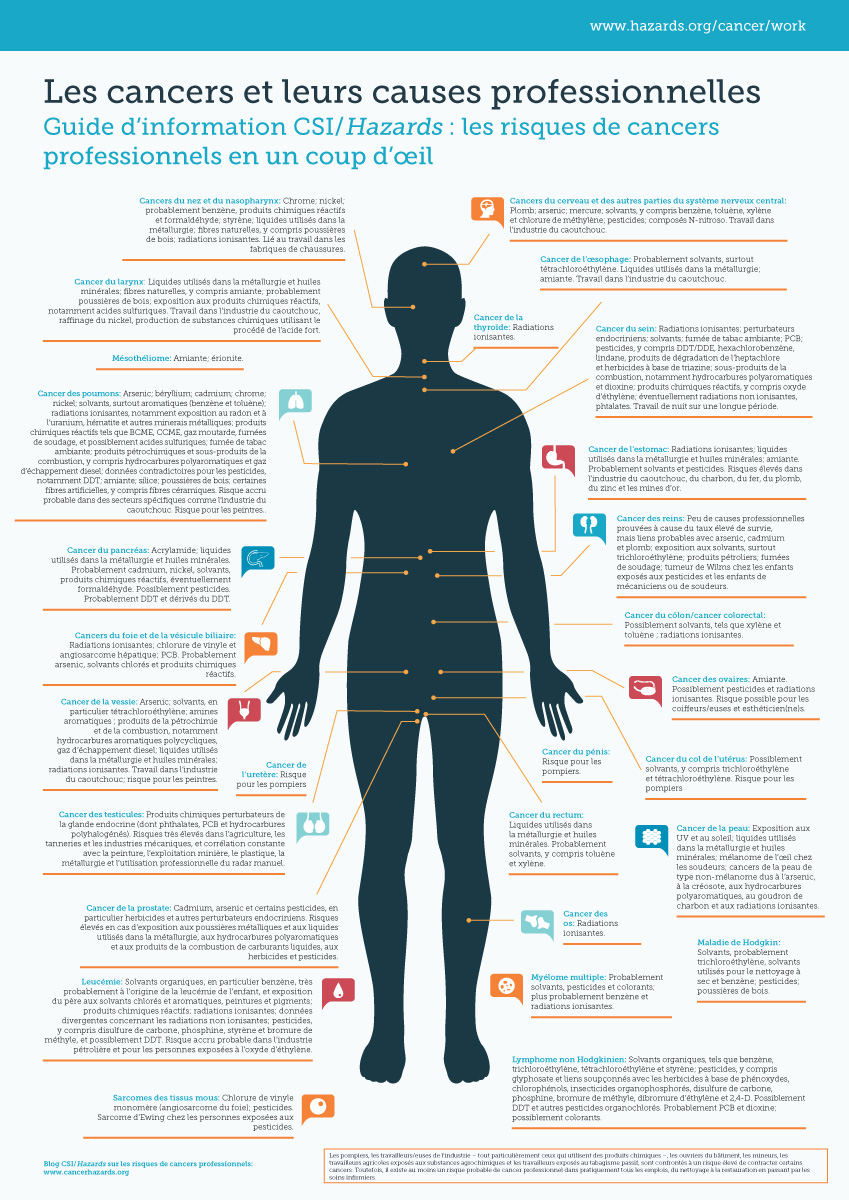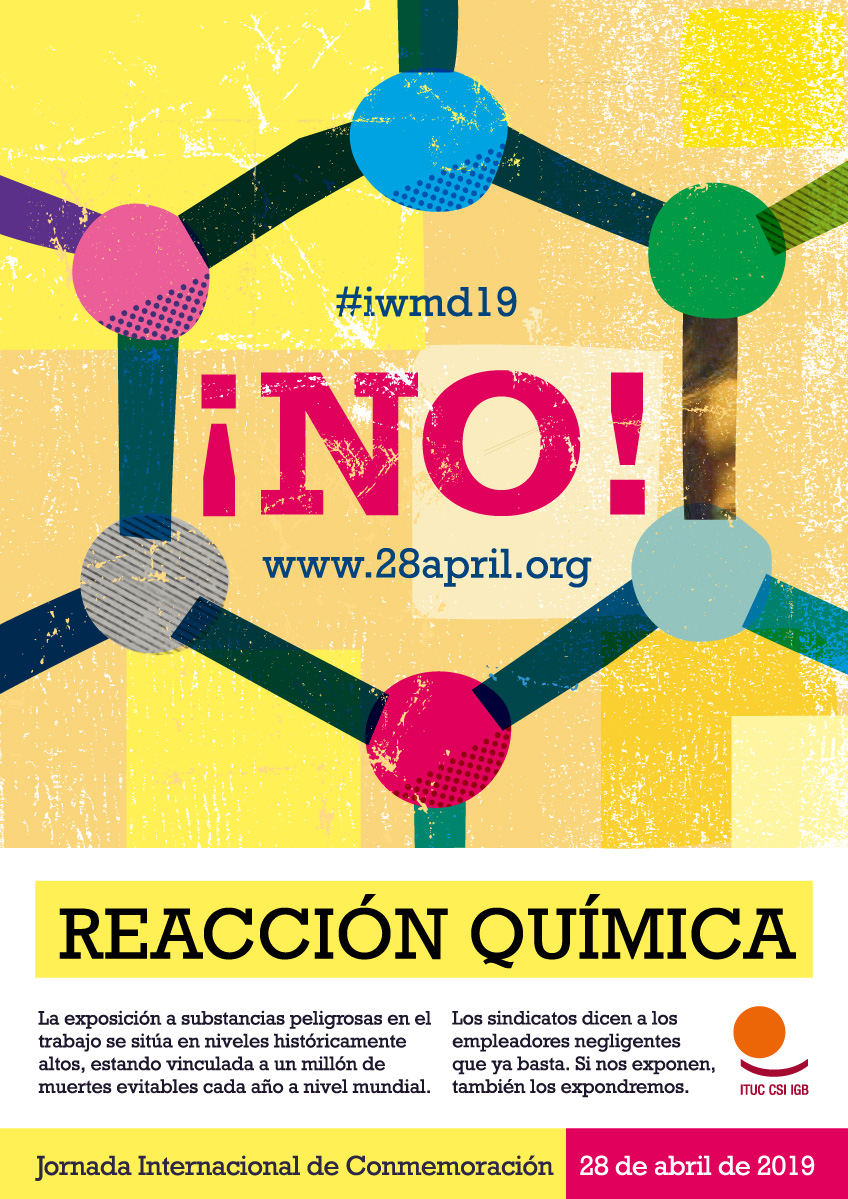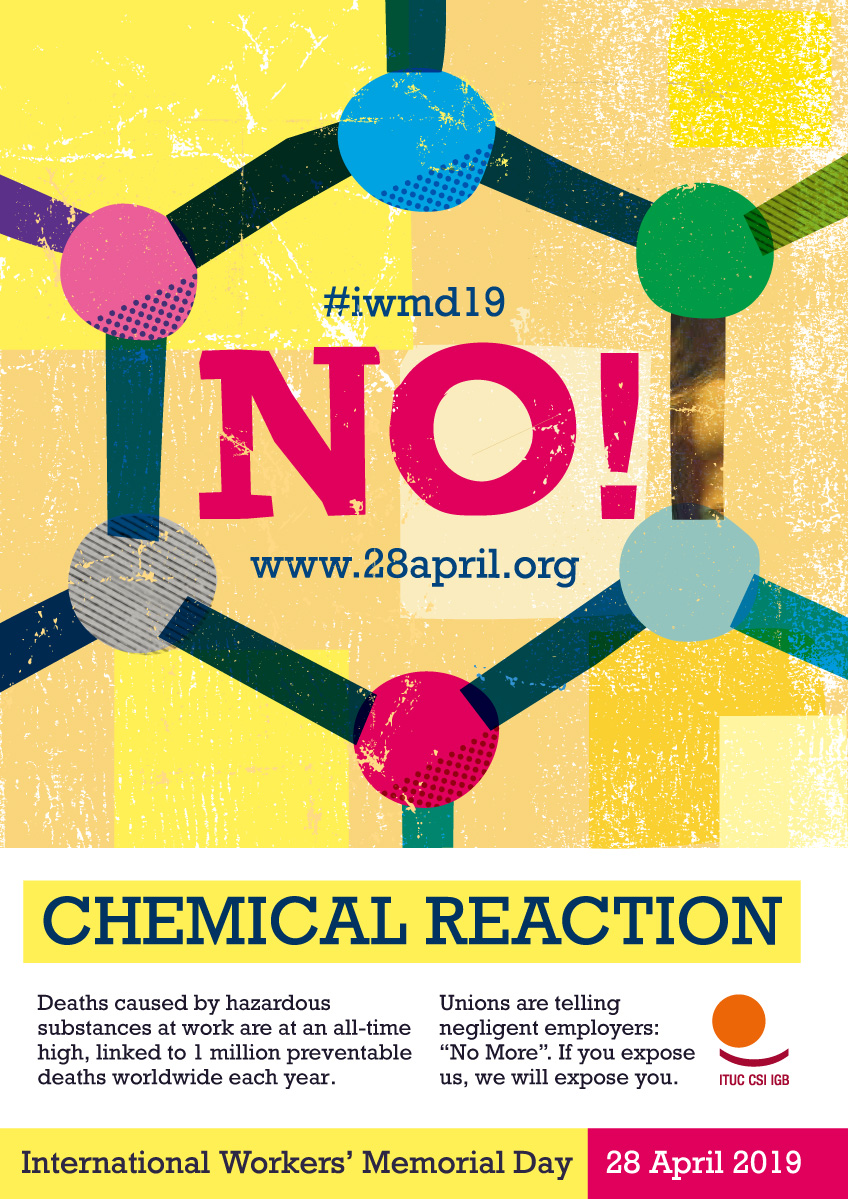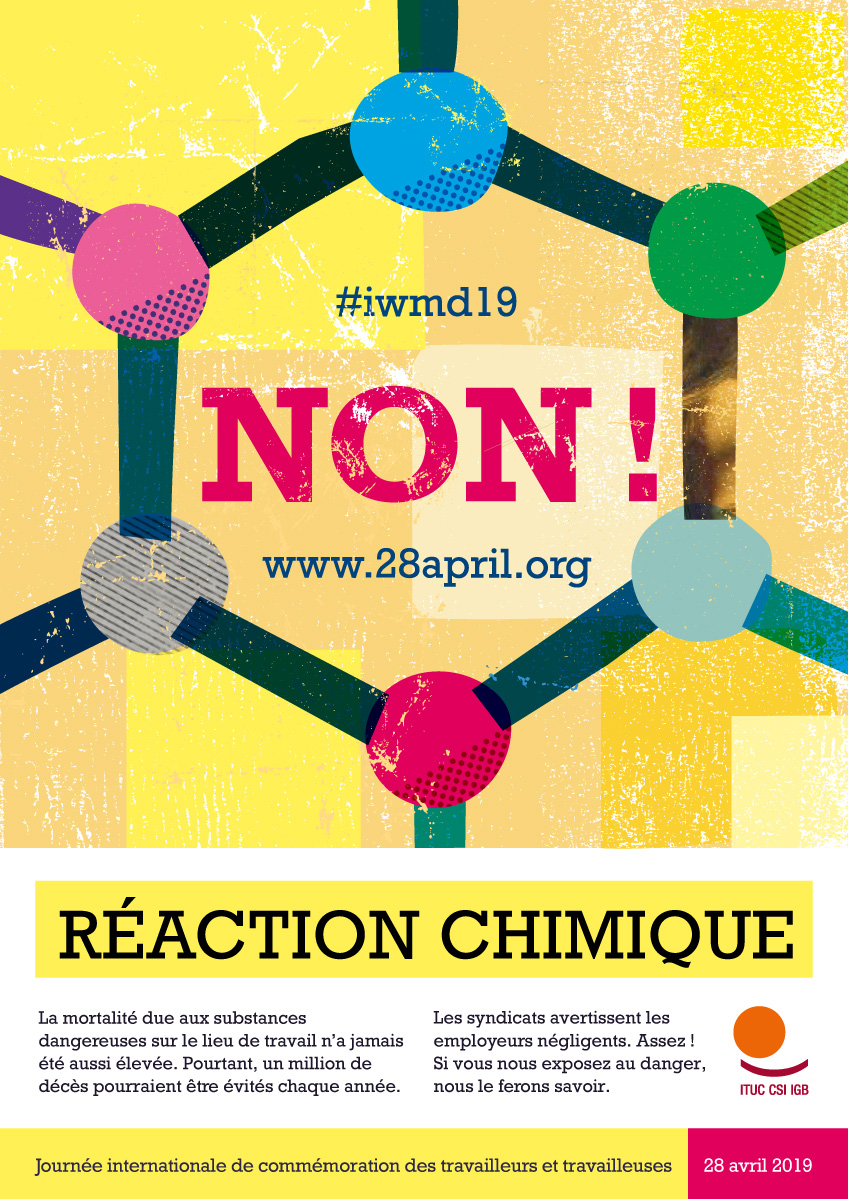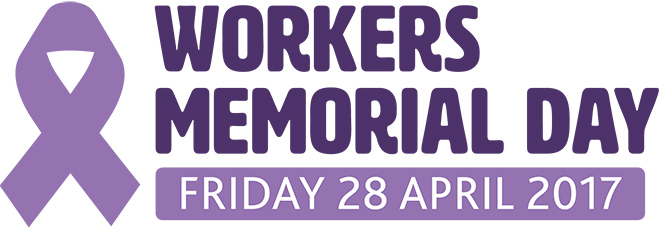La CSI propone como tema general para la Jornada Internacional de Conmemoración de los trabajadores y trabajadoras fallecidos y lesionados, el 28 de abril de 2018, “Los lugares de trabajo organizados son lugares de trabajo más seguros”. Las variantes de este tema podrían incluir “Los sindicatos hacen que los lugares de trabajo sean más seguros y más sanos” y “La organización sindical salva vidas”.
En las próximas semanas, la CSI elaborará material para apoyar la preparación de materiales de campaña. Para ayudar en esta labor, buscamos muestras de medidas sindicales que propicien mejoras a nivel del lugar de trabajo, de la legislación o los sectores, así como los beneficios económicos y humanos que aporta esta medida de protección. Envíe los detalles al Asesor de Salud y Seguridad de la CSI, Rory O’Neill al correo editor@hazards.org
La actualización de las páginas web dedicadas a este tema, www.28april.org, dará comienzo a medida que se confirmen los materiales, las actividades y los eventos.
Naturalmente, las organizaciones afiliadas tienen la libertad de adaptar o modificar el tema para adaptarse a las prioridades locales.
Sin otro particular, reciba un fraternal saludo,
Sharan Burrow
